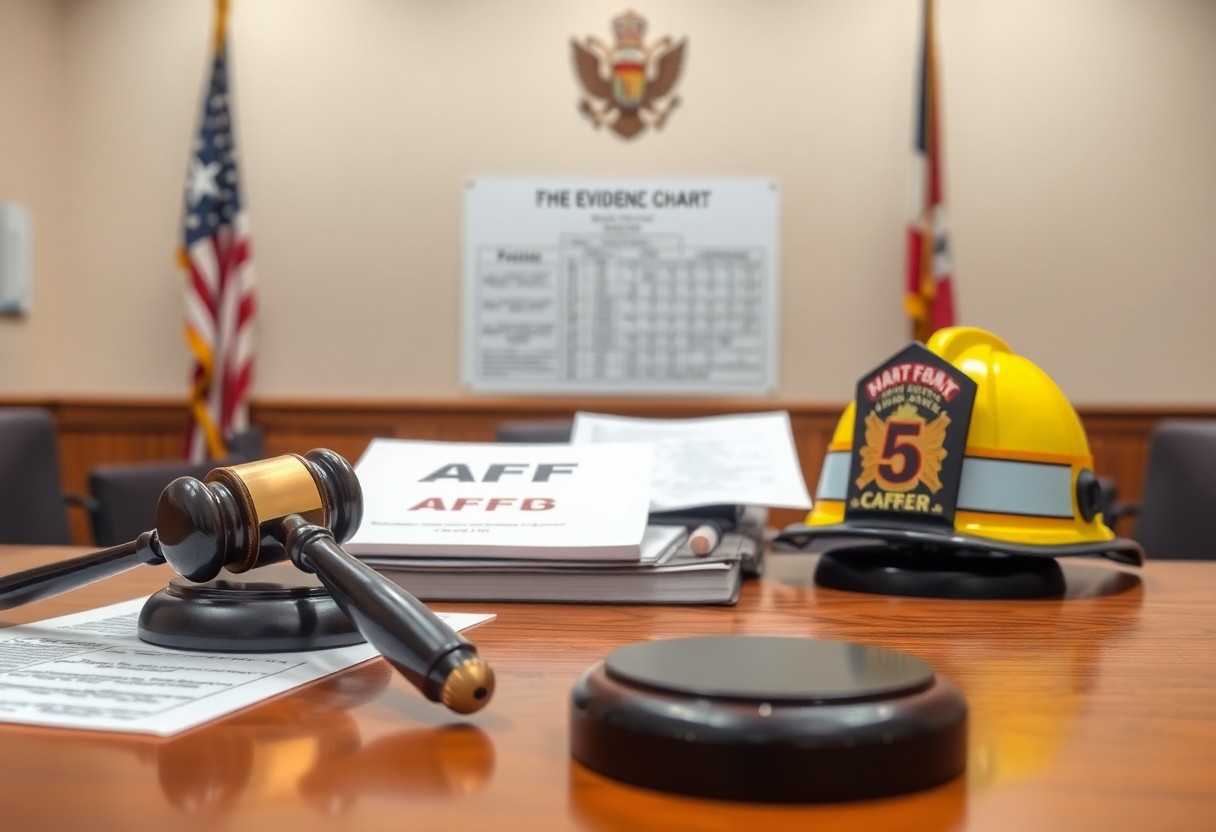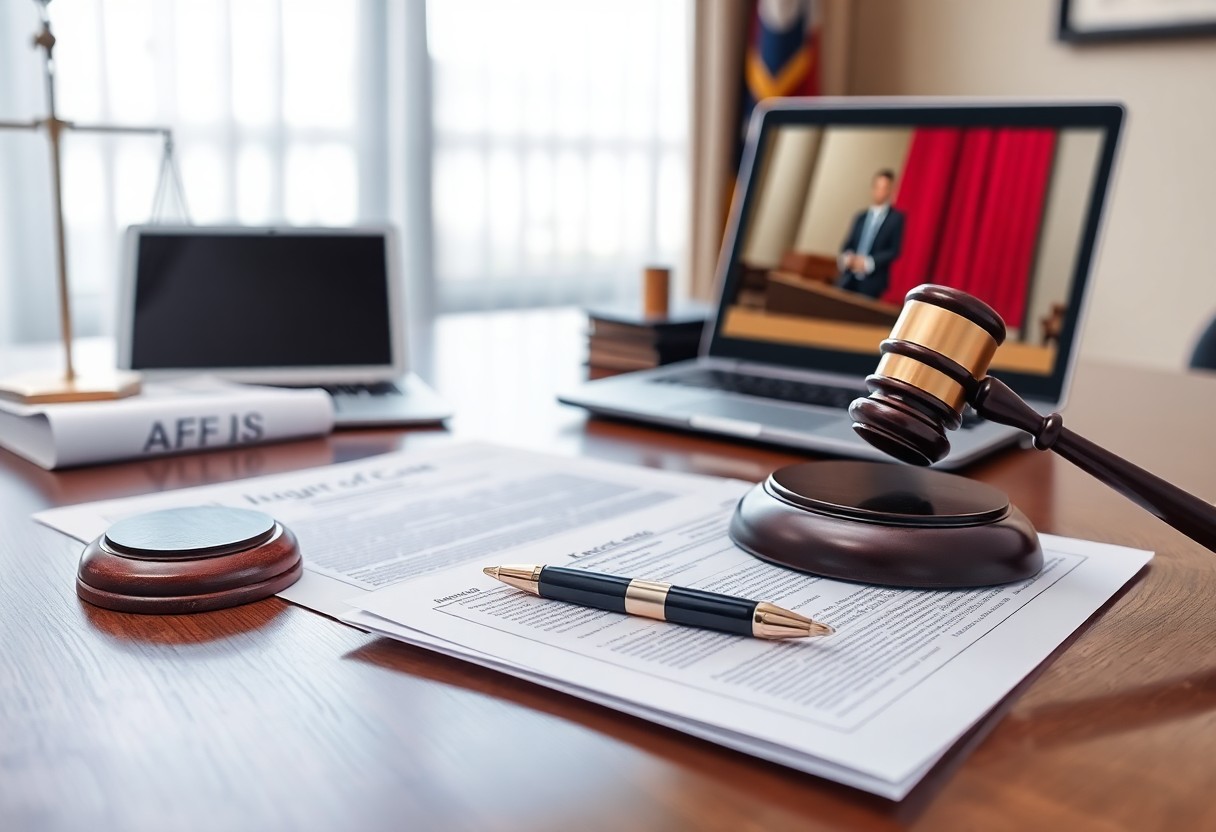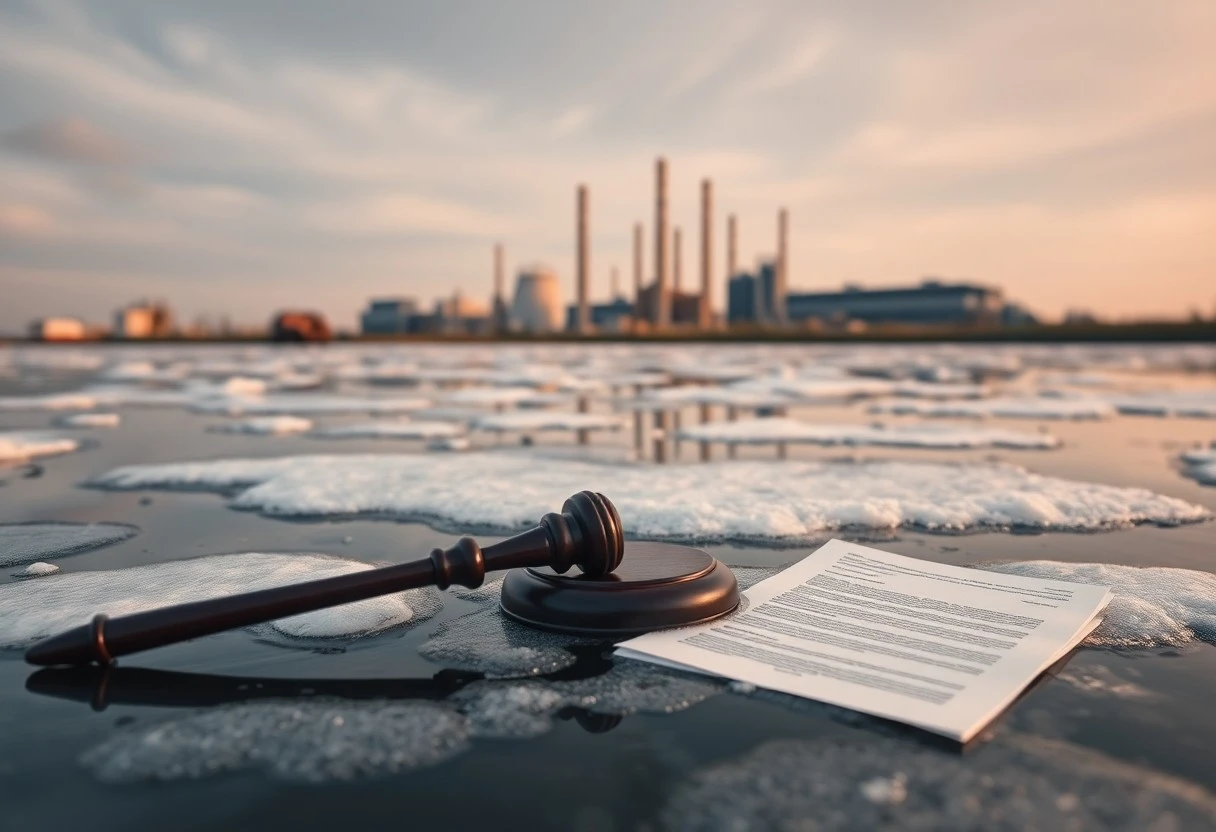Your rights regarding exposure to AFFF (Aqueous Film-Forming Foam) are significant, especially if you have suffered health issues linked to this chemical. It is imperative to understand how to seek assistance from qualified AFFF attorneys to ensure your claims are taken seriously. These legal professionals can guide you through the complexities of litigation, help you receive compensation for medical expenses, and provide support as you navigate the legal process. This guide will empower you with the information needed to assert your rights and find the legal aid you deserve.
Understanding AFFF and Your Rights
What is AFFF?
One of the primary concerns surrounding firefighting foam is Aqueous Film-Forming Foam (AFFF), a type of firefighting agent that contains perfluoroalkyl substances (PFAS). These substances have been widely used in military and civilian firefighting operations due to their ability to quickly suppress flammable liquids. While AFFF has undoubtedly proven effective in extinguishing fires, it poses significant health risks to individuals exposed to it, particularly first responders and residents near military bases or airports where AFFF is commonly utilized.
One of the most alarming aspects of AFFF is its persistent nature in the environment, leading to contamination of water supplies. Studies have indicated that exposure to PFAS can result in serious health issues, including reproductive problems, liver damage, and certain forms of cancer. Understanding what AFFF is and the associated risks can help you take proactive steps toward safeguarding your health and that of your loved ones.
Legal Rights for AFFF Exposure
For individuals who have been impacted by AFFF, it’s imperative to understand your legal rights concerning exposure to this harmful substance. If you suspect that you have been exposed to AFFF and suffered health issues as a result, you may have the right to seek compensation for your medical expenses, pain and suffering, and any lost wages due to your condition. Engaging with an experienced AFFF attorney can assist in navigating the complexities of environmental law and negligence claims that may arise from your situation.
AFFF exposure has led to numerous lawsuits against manufacturers and governments, claiming negligence for failing to warn about the dangers of their products. Your legal rights may include pursuing a claim for medical expenses, future treatment costs, and damages for pain and suffering. Seeking help from knowledgeable attorneys in this niche can provide you with the necessary guidance to understand your options fully and ensure you receive the compensation you deserve.
How to Identify AFFF Contamination
It is imperative for you to recognize the indicators of AFFF contamination, particularly when you live near military bases, fire training facilities, or areas where firefighting foam has been used. You may notice unusual signs in your environment, such as discoloration of water bodies, foamy residues on surfaces after rain, or any unexplained changes in soil quality. Additionally, if you observe frequent health issues among individuals in your community, such as skin irritations, unusual cancers, or reproductive problems, these may be linked to AFFF exposure.
Signs of Contamination
An increased presence of perfluoroalkyl and polyfluoroalkyl substances (PFAS) in your drinking water can be a significant indicator of AFFF contamination. Testing your water supply for these harmful substances can provide important information regarding your safety and health. If your water source shows elevated levels of PFAS, it is critical for you to take immediate action, including seeking alternative drinking water sources and consulting with environmental agencies.
Environmental Concerns
On a broader scale, AFFF contamination poses severe risks to local ecosystems. The chemicals involved can leach into groundwater or surface water, impacting aquatic life and potentially infiltrating your potable water supply. This can lead to a decline in biodiversity and the disruption of natural habitats, affecting both flora and fauna and posing health risks to humans relying on those natural resources.
Signs of AFFF contamination are prevalent. If you observe abnormal aquatic life or degraded water quality in your area, these are strong indicators of environmental disruption tied to firefighting activities. It is important to act promptly if you suspect AFFF contamination in your environment, as the long-term effects of exposure to PFAS can lead to severe health issues. Building awareness around these concerns can empower you to advocate for cleaner environments and seek the necessary legal assistance through AFFF attorneys.
Tips for Documenting Your Case
You need to be thorough in documenting your situation if you wish to seek assistance from AFFF attorneys. Proper documentation will greatly enhance your case and ensure that you are prepared when discussing your claims. Consider the following tips:
- Keep a detailed journal of any health issues or symptoms related to AFFF exposure.
- Collect relevant documents, including medical records, discharge papers, and invoices.
- Photograph any physical evidence that may support your case.
- Maintain a calendar of events that pertain to your exposure and health deterioration.
Assume that the more organized your documentation is, the stronger your case will be when you consult with AFFF attorneys.
Gathering Evidence
There’s a significant impact that the evidence you gather can have on your case. The more comprehensive your collection of relevant materials, the easier it will be for your AFFF attorneys to build a strong case on your behalf. Start by ensuring that you maintain all records related to your exposure, including anything that can establish a connection between AFFF and your health issues. This may include inspection reports, safety logs, and any communications you have had with your employers or agencies.
Moreover, witness statements can serve as powerful pieces of evidence. Talking to fellow employees or individuals who may have been exposed alongside you can help substantiate your claims. By gathering these materials, you are not only strengthening your case but also making the process smoother when it comes time to pursue legal action.
Importance of Medical Records
Now, focusing on medical records is an necessary part of documenting your case. These records provide invaluable information regarding your health claims and the treatments you have received. They help establish a clear timeline of your medical history, including diagnoses and any impact related to AFFF exposure. If your medical records note a direct connection to chemicals in AFFF, it can significantly bolster your case.
Gathering your medical records also allows you to track your health over time, identifying patterns that may link specific symptoms to AFFF exposure. Make sure to obtain copies of your lab results, diagnosis, and notes from healthcare providers, as these details can be key to demonstrating how AFFF has negatively impacted your life. Always keep your records organized and be prepared to share them with your attorneys, reinforcing the strength of your claims. As a result, this will help illuminate the full extent of your situation as you move through the legal process.
Factors to Consider When Choosing an AFFF Attorney
Your choice of an AFFF attorney can significantly impact your case outcomes. There are several important factors to consider to ensure you receive the best possible representation. Here are some key considerations you should keep in mind:
- Experience in handling AFFF cases
- Specialization in environmental law or toxic torts
- Track record of successful outcomes
- Client reviews and testimonials
- Communication skills and accessibility
Any attorney you choose should not only understand the nuances of AFFF litigation but also be someone you feel comfortable working closely with throughout the process.
Experience and Specialization
Assuming you want to achieve the best possible outcome in your AFFF case, selecting an attorney with specific experience and specialization is paramount. An attorney who has worked significantly on AFFF litigation will possess in-depth knowledge of the complexities surrounding these cases. This ensures they can effectively navigate legal procedures, understand the science behind the chemicals involved, and argue your case persuasively from a position of strength.
Moreover, an attorney specializing in environmental law or toxic torts will likely have established connections with experts and resources that can bolster your case. This level of expertise often translates into better strategies and approaches tailored to secure compensation for victims adversely affected by AFFF exposure.
Client Testimonials and Reviews
While assessing potential AFFF attorneys, pay close attention to client testimonials and reviews. Feedback from past clients can provide valuable insights into an attorney’s effectiveness, reliability, and overall integrity. Positive testimonials often highlight aspects such as professionalism, communication efficiency, and a genuine commitment to client welfare, painting a picture of what your experience might be like.
Reviews often highlight how the attorney’s advocacy led to significant settlements or victories in court, showcasing their expertise in navigating complex legal battles related to AFFF exposure. Conversely, negative reviews may point to issues such as poor communication or a lack of dedication. Ultimately, you should aim to find an attorney whose positive feedback resonates with your expectations and who you feel confident can advocate for your rights effectively.
How to Approach Legal Consultation
After deciding to seek legal assistance, the next step is to approach your consultation with AFFF attorneys effectively. You should recognize that each attorney has their unique approach and expertise, so it’s vital to find one that aligns with your specific needs. Take time to research potential attorneys, their experience with AFFF-related cases, and any client reviews to gauge their suitability. This preparatory step not only helps you feel more comfortable but also enables you to engage in a more productive conversation during the consultation.
Preparing for Your First Meeting
Little preparation can go a long way in ensuring that your first meeting with an attorney is fruitful. Start by gathering all relevant documents related to your case, such as medical records, employment history, and any previous correspondence regarding the AFFF exposure. It’s also beneficial to outline your specific concerns and desired outcomes from the legal process. Being organized and clear about your situation will allow the attorney to provide the most accurate advice and recommendations tailored to your circumstances.
Questions to Ask Your Attorney
Assuming you have a basic understanding of what to expect in your initial consultation, it is vital to ask pointed questions that clarify the attorney’s expertise and approach. Inquire about their experience with *AFFF litigation*, the strategies they employ, and how they will communicate with you throughout the process. Asking about potential outcomes and timelines can significantly enhance your understanding of what to expect moving forward.
Questions to ask your attorney could focus on their success rate with similar cases, availability for communication, and the specific steps involved in your case. Asking about fees and payment structures is equally important, as it helps you assess whether you can afford their services without financial strain. Ensure that you feel comfortable with their communication style and approach, as this relationship can be pivotal as you navigate the complexities of your legal situation.
Common Challenges in AFFF Litigation
All victims of Aqueous Film-Forming Foam (AFFF) exposure face a myriad of challenges when pursuing legal action. Common obstacles include complex legal processes, stringent timelines, and the necessity of gathering extensive evidence. You may feel overwhelmed by the amount of documentation required and the various legal terms that are foreign to you. Engaging with qualified Firefighting Foam Lawsuit: How Can An Attorney Help? can simplify this journey and provide clarity on your specific case. Understanding these aspects will guide you through this demanding litigation environment.
Navigating Legal Complexities
Now, the legal landscape surrounding AFFF litigation is often intricate and filled with nuances that can be confusing for those without expertise. You might encounter terms such as “toxic torts” or “class action” and wonder how they apply to your case. These challenges may include jurisdictional issues and varying state laws that govern AFFF claims. By partnering with a skilled attorney, you can more effectively navigate these complexities, ensuring that your case is appropriately filed and represented.
Managing Emotional Stress
There’s no denying that dealing with the implications of AFFF exposure can take a toll on your emotional well-being. The uncertainty of legal proceedings and the potential for significant health issues can lead to heightened anxiety and stress. It’s natural to feel overwhelmed; after all, you’re not only fighting for compensation but also grappling with the possible impact on your life and family. Seeking support can provide you the emotional relief needed to help you cope during this journey.
It is important to acknowledge the emotional strain that can arise during litigation. Strategies such as engaging with support groups, speaking to mental health professionals, or simply confiding in trusted friends and family can offer significant relief. These outlets can help you manage your feelings, organize your thoughts, and provide an important support network. While navigating the legal system, prioritizing your emotional health will allow you to have a clearer focus on your case and its outcomes.
Final Words
So, understanding your rights when it comes to AFFF exposure can significantly impact your ability to seek proper legal help and secure the compensation you deserve. Educating yourself about the health risks associated with firefighter foams is the first step toward advocating for your rights. By familiarizing yourself with the legal framework surrounding AFFF litigation, you empower yourself to take action. Connecting with experienced AFFF attorneys can be beneficial in navigating the complex legal landscape, as they possess the expertise needed to support your claims effectively.
Additionally, it’s important to gather and preserve any relevant documentation related to your exposure and health conditions. These records will play a key role in your case and can enhance the effectiveness of your chosen attorney. Engaging in open communication with your legal counsel allows them to represent your best interests and build a strong case on your behalf. By being proactive and informed, you can take the necessary steps to hold responsible parties accountable and seek the justice you deserve.

















